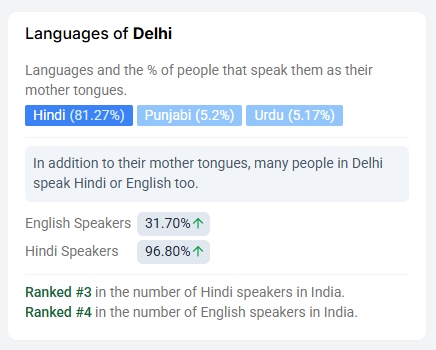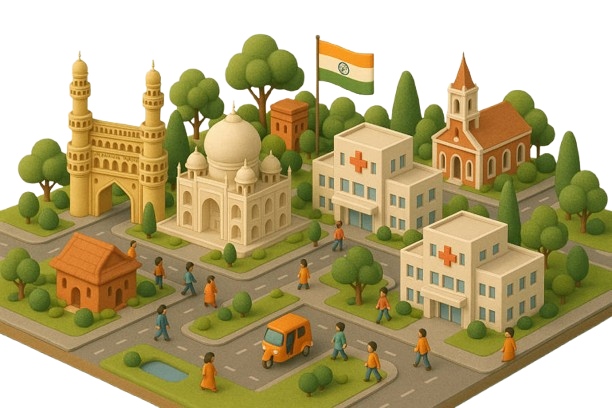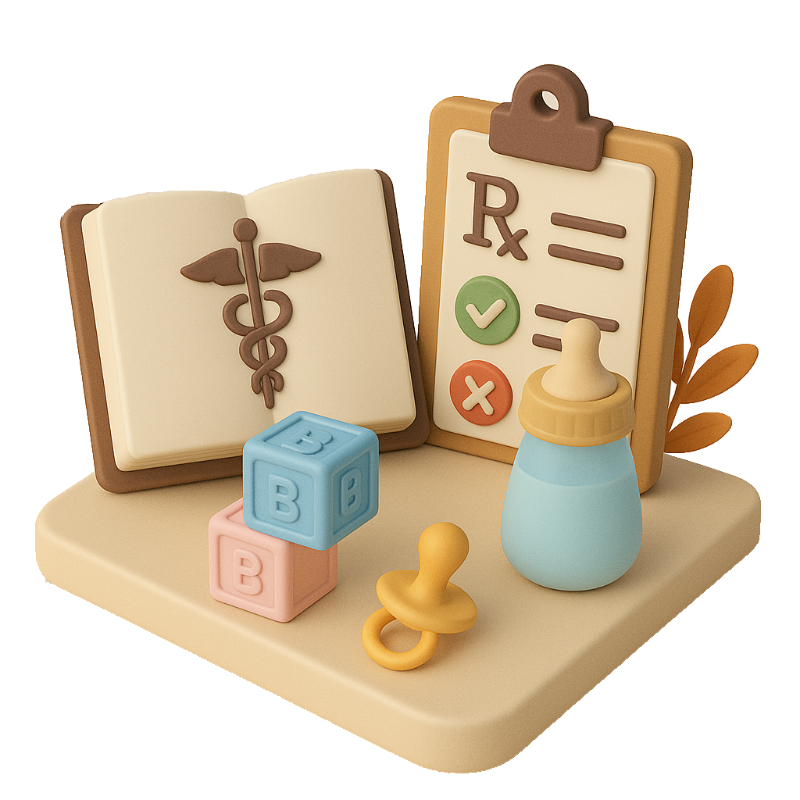With 50% of the seats in government medical colleges available in All India Quota, there are many good seats up for grabs in states that are not your own. With India being as linguistically and culturally diverse as it is, doing your post-graduation in a different state can sometimes feel like moving to a new country. During counselling, many candidates face the dilemma of whether to join a college far from their home state. Here are some regional factors to weigh in your decision:
Language Barrier
This is a very practical consideration. If you study in a state where the predominant spoken language is one you aren’t fluent in, it will pose challenges; there is no two way about it. Communication with patients is a cornerstone of clinical practice. For example, if a doctor from North India goes to a medical college in Tamil Nadu, they might initially struggle if they can’t understand or speak Tamil when taking histories or explaining treatment to patients. This is more pronounced in rural areas than in cities. Similarly, a South Indian student in a Hindi-speaking belt will face issues. However, thousands of doctors overcome this every year. The good news is that immersion is a great teacher – living in the region and working daily in the hospital forces you to pick up the local language quickly. As one experienced doctor quipped, “If you have the brains to get a medical seat, you have the brains to learn a new language too.” It might be uncomfortable for a few months, but you’ll likely become conversational in the local language by the end of your first year of residency (necessity is a strong motivator!). Also, many medical campuses often use English for formal teaching and discussions, and you’ll usually find colleagues who can translate or help you initially.
Tip: If you’re opting for a state with a new language, try to learn a few basic patient-interaction phrases ahead of time and continue making an effort once you join – it will endear you to patients and make your life easier.
Languages section in neetvantage

In neetvantage, when you view the details of an institute, we show you the predominant languages spoken in that state too along with the percentage of people who might speak in English or Hindi.
Local Culture
Beyond language, consider the cultural differences and your adaptability. Food habits, festivals, social norms, and even the disease patterns can vary by region. Adapting to a new culture can be enriching – you become more diverse in your outlook, and you might enjoy the adventure of a new city. Many students cherish the experience of discovering a new part of India during their PG. That said, it comes with homesickness at times. If you are extremely attached to home or have personal situations (e.g., needing to care for family) that make moving far difficult, you might prefer to stay in a nearby state if possible. Some candidates intentionally choose a slightly lower-ranked college in their home state over a higher-ranked one across the country for this reason. It’s a personal choice – there is no “wrong” decision here. Just be honest with yourself about how well you handle change. Remember that 3 years is a significant period: you will be living day-to-day in that environment.
Food
The food aspect is often overlooked and might not matter in the most cases as most Indians are open to trying food from other cultures. However, it’s worth noting that some states in India are predominantly vegetarian and if your preferred diet is mostly non-vegetarian, you might face some difficulties in such places. For example, consider Palitana city in Bhavnagar, Gujarat where consumption of all kinds of non-vegetarian food is banned.
Hometown vs Metro vs New State
Each has its pros and cons. A metro (like Delhi, Mumbai, Kolkata, Chennai, Bengaluru, etc.) often means better exposure to advanced medical cases, research, and a cosmopolitan life, but also higher cost of living and language might still be an issue (though English/Hindi are more commonly understood in metro hospitals). Your hometown or home state offers familiarity, family support, and ease of communication, but perhaps fewer cutting-edge cases or facilities if it’s a smaller city. A completely new state (especially if it’s a rural area) might offer unique clinical experiences (for instance, different prevalent diseases, or different administrative structure), and you’ll build a wider network of contacts across regions. Doctors who train in multiple states often benefit from having professional connections all over. Culturally, you become more versatile. The downside is the initial culture shock and adjustment phase.
Climate and Lifestyle
Even climate can matter – think of a person from tropical Kerala moving to do PG in the snowy winters of Kashmir, or vice versa. Extreme weather adaptation is a minor factor but worth a thought. City size matters too: if you can’t imagine life outside a big city, a rural medical college might frustrate you (and vice versa). Consider things like how you’ll commute, living accommodations (hostel vs renting outside), safety, etc., especially if you’re moving far from home.
Bottom line
Weigh the opportunity against the comfort. If a significantly better academic opportunity comes in a different region, don’t let unfamiliar language or culture automatically deter you – every doctor can learn to manage, and many seniors will attest that they grew both personally and professionally by stepping out of their comfort zone. On the other hand, if you have two fairly similar options and one is in a location where you’ll be happier, it’s reasonable to choose the place where you can thrive. A happy doctor is likely to be a better doctor. Whatever you choose, once you join, embrace the local culture – learn the language basics, try the local cuisine, mingle with locals. You might come out not only with a degree but also with a second language and a broader perspective on life.



